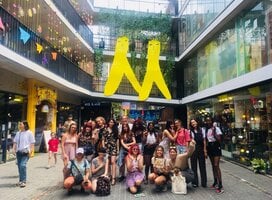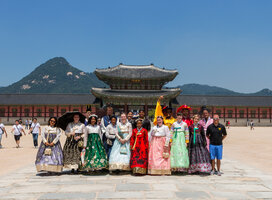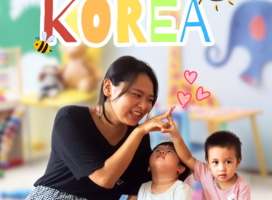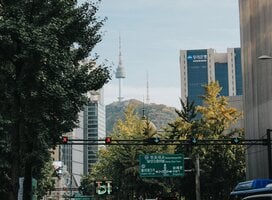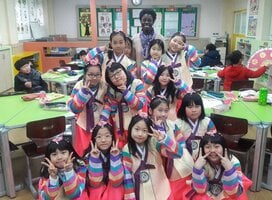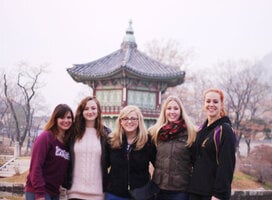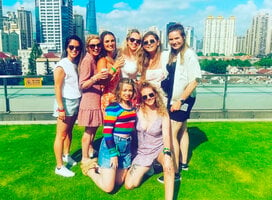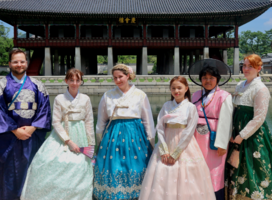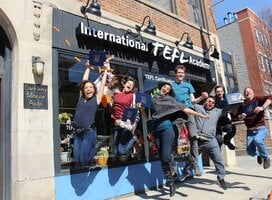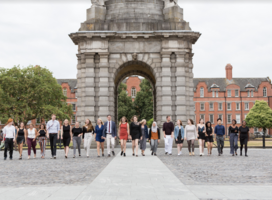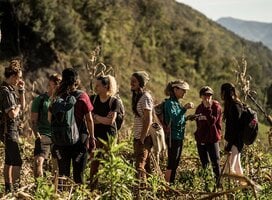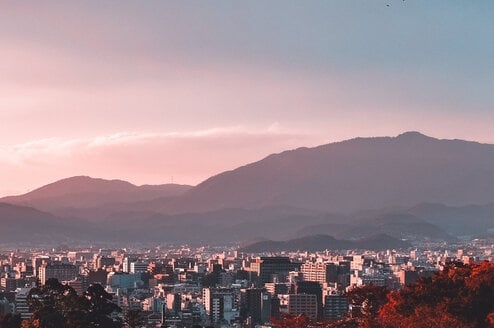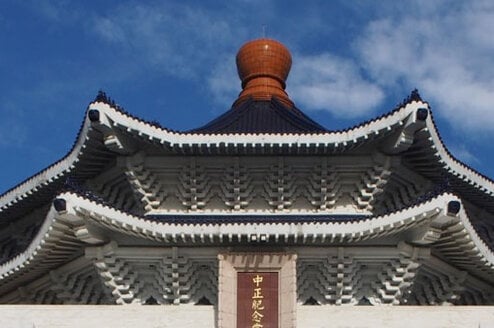Gap Year Programs in South Korea
South Korea is an amazing country and a perfect place to take a gap year. The food is spectacular, the nightlife is amongst the best in Asia, and the people are extremely nice and welcoming. Additionally, the cost of living is very affordable (compared to the U.S.), so you have the freedom to adventure more without burning a hole in your wallet. With so much to see and explore, there’s never a dull moment to living in Korea!
There are dozens of gap year opportunities that you can take in Korea. Whatever the job or opportunity may be, you will definitely have a life-changing experience of living in this country. The most popular reasons people flock to Korea are teaching English, traveling, and studying the language.
Teaching English
Over the last decade or so, there has been a high demand for native English teachers in Korea. Unfortunately, many of the programs cut their budget last year, but it’s still very easy to find a gig if you search for it.
Teaching jobs can be found in all regions of Korea and even on the tropical island of Jeju. The only qualifications are that you must have citizenship from an English speaking country, your post-secondary education must’ve been completed in English from an accredited university in an English-speaking country, and you must have a get TEFL certified.
If you have a bachelor’s degree in education, you do not need to get TEFL certified (Teach English as a Foreign Language). The application process is quite simple, as many recruiters are looking to hire you as their English teachers.
You can either get placed in a public school or a private school (called hagwons). Every teaching job is different (depending on the school), but all English teachers usually get their rent paid for, get exempt from taxes, and get paid vacation.
It’s an excellent gig if you want to save money, experience a culture, and travel around Asia for a year!
Traveling
South Korea is emerging as one of Asia’s most popular destinations for backpackers worldwide. Why? Korea is very affordable and close in proximity to other attractive countries like China, Japan, Taiwan, and SE Asia.
The flights inbound and outbound to Korea are very cheap, as long as you book them a few months in advance. Because so many backpackers come through this country, almost all hostels cater to their needs (free wifi, free breakfast, good hospitality, affordable, etc.).
It’s also important to know that Korea is the most ‘connected’ country in the world when it comes to Internet and cell phone coverage. There is free wi-fi on every street corner!
Language Study
The Korean language (known as Hangul) is a very common Asian language that foreigners study. It is widely considered the easiest Asian language to learn for a few reasons. First, it has a phonetic alphabet with 14 consonants and 10 vowels. Every letter/vowel is always pronounced the same way, and there are hardly any irregular verbs.
Once you can master reading and writing Hangul (it’s very easy), you are off to the races! The Korean government subsidizes language courses for foreigners, so they are very cheap (and sometimes free) to join.
Most Korean universities offer Hangul classes for foreigners, and there are frequent foreigner meet-ups to practice speaking. You’d be surprised by how fast you can pick up Korea, even if you are just here for a few weeks!
Cost of Living
The cost of living in Korea is affordable compared to US costs. Food, especially, is reasonably priced, even at basic restaurants. Of course, it depends on how much you want to buy and how many beers you enjoy on the weekends, but you can get by on a modest sum each month even when factoring in transportation costs, meals, and even some extra goods.
Gap Year Programs in South Korea
What People Are Saying
Related Gap Year Articles
Frequently Asked Questions
-
What are the benefits of a gap year in South Korea?
A gap year in Korea offers the opportunity to boost your resume, gain valuable experiences, and immerse yourself in the vibrant culture of the land of the morning calm. With dormant volcanoes and mountains spanning nearly 75% of the country, Korea is a place of natural beauty, drawing hikers and other outdoor adventure seekers.
-
How much does it cost to live in South Korea for a year?
You can expect to pay around $1,300- $1800 per month, including transportation, food, entertainment, and rent. Your highest expenses will likely be housing, but teachers in South Korea will often find programs with accommodations included, or monthly housing stipends!
-
Can you take a gap year in South Korea?
Yes! Whether you're looking to learn how to speak Korean, fully immerse yourself in Korean culture, do an internship, or teach English, there are so many different ways to spend your gap year in Korea.
Related Content -
What are the most popular types of gap year programs in South Korea?
Teaching and language immersion programs are the most popular types of gap year programs in Korea. For travelers interested in teaching English, TEFL certification courses are a great option and many of these programs even offer accommodations, flight reimbursement, and an excellent monthly wage.
-
Can you travel to South Korea this year?
Yes, all are welcome to visit South Korea and study, teach, work, and more in 2023!
-
What kind of visa do I need for a gap year in South Korea?
A visitor visa in South Korea is valid for 90 days (depending on what passport you hold). For longer stays, or if you plan on working during your time in South Korea, you will need to apply for the relevant visa. To research and apply for a visa based on your circumstances, visit the Korea Visa Portal.

